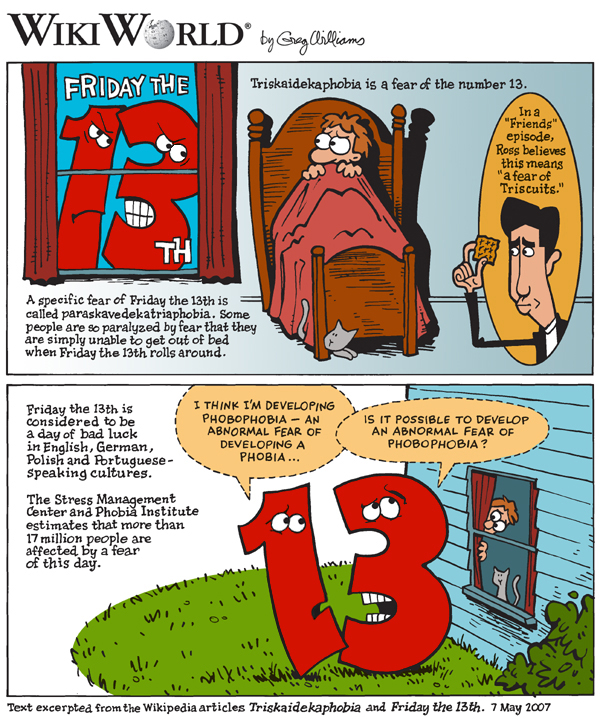By now basically everyone has heard about the allegations that SlimVirgin is a spy. I'm not going to comment a whole lot on the evidence; if you want to review it, please do so. The thing I find interesting is the way in which Jayjg confirmed the rumors in an reply to a question I asked him back in June 2006 inquiring about his oversighting of every edit ever made by SlimV (SlimVirgin's prior account). I'm not at liberty to share the email -- it was on the super-secret arbcom-l mailing list that we all swore in blood never to reveal anything from, and I'm not ready to burn that bridge quite yet -- but on rereading Jay's response to my inquiry I'm quite convinced that he was blowing smoke then and is doing so now. The exact details of the rumors that are spreading like wildfire now may not be accurate, but I'd be totally unsurprised to find out that SlimVirgin is somehow connected to the the Flight 103 bombings. Why else would she have all of her edits to such topics disappeared?
What amuses me most about all this is how amateurishly done this has been. Jayjg's hamhanded attempts to protect his friend have actually done a great deal to draw attention to it. Jimbo and the rest of the ArbCom concluded that Jay's use of oversight back then was appropriate, but really it quite obviously was not. The horse was long gone from the barn at that point; while the content of the edits may be hard or impossible to find at this point (the edits were deleted before being oversighted, which means they're not in any of the dumps) the edit summaries and the articles edited are still very much available. So instead of proof we can only speculate, but suggestive evidence combined with an obviously hamhanded coverup will tend to convince most people. Jay's problem is that he's not as smart as he thinks he is. And while Jimbo's got his back for now, that'll evaporate if public opinion goes the wrong way. Just look at what happened to Essjay.
Fascinating stuff. I hear Jimbo's gone to bat for Slim on this one; it'll be interesting to see whether he has to eat his words again or not.
Update: Someone attempted to start a discussion on the administrator's noticeboard of this situation, but it has been suppressed by Proabivouac, whoever that is. Some people just never learn. SlimVirgin, a little advice: the only way out of this situation is to abandon your account. This drama will surround you indefinitely; the only way for it to end is for you to start completely fresh with a new one. You won't be able to suppress all discussion of this indefinitely, and the more you try the more people will be convinced of the truth of the allegations. You've made this bed; now you must sleep in it.
What amuses me most about all this is how amateurishly done this has been. Jayjg's hamhanded attempts to protect his friend have actually done a great deal to draw attention to it. Jimbo and the rest of the ArbCom concluded that Jay's use of oversight back then was appropriate, but really it quite obviously was not. The horse was long gone from the barn at that point; while the content of the edits may be hard or impossible to find at this point (the edits were deleted before being oversighted, which means they're not in any of the dumps) the edit summaries and the articles edited are still very much available. So instead of proof we can only speculate, but suggestive evidence combined with an obviously hamhanded coverup will tend to convince most people. Jay's problem is that he's not as smart as he thinks he is. And while Jimbo's got his back for now, that'll evaporate if public opinion goes the wrong way. Just look at what happened to Essjay.
Fascinating stuff. I hear Jimbo's gone to bat for Slim on this one; it'll be interesting to see whether he has to eat his words again or not.
Update: Someone attempted to start a discussion on the administrator's noticeboard of this situation, but it has been suppressed by Proabivouac, whoever that is. Some people just never learn. SlimVirgin, a little advice: the only way out of this situation is to abandon your account. This drama will surround you indefinitely; the only way for it to end is for you to start completely fresh with a new one. You won't be able to suppress all discussion of this indefinitely, and the more you try the more people will be convinced of the truth of the allegations. You've made this bed; now you must sleep in it.











 This weekend's road trip had some interesting aspects to it. We originally set out on Friday for Galesburg to visit our friend
This weekend's road trip had some interesting aspects to it. We originally set out on Friday for Galesburg to visit our friend  The other mentionable from this trip is Jag's Java, a very nice little coffee place in Cedar Falls, Iowa that we've been to before, but I feel like giving him a little shout out for being there when we needed coffee, all three times that weekend. I'm pretty certain the guy in the picture is the proprietor. They're near the border between Waterloo and Cedar Falls; if you happen to be a University of Northern Iowa student, or just in that area, they're definitely a positive alternative to Starbucks. Jag's doesn't appear to have a web presence, although they do offer free wireless (but what coffeehouse doesn't). We've never actually stayed in the store; they have a drivethrough and we've used it almost every time we've been there.
The other mentionable from this trip is Jag's Java, a very nice little coffee place in Cedar Falls, Iowa that we've been to before, but I feel like giving him a little shout out for being there when we needed coffee, all three times that weekend. I'm pretty certain the guy in the picture is the proprietor. They're near the border between Waterloo and Cedar Falls; if you happen to be a University of Northern Iowa student, or just in that area, they're definitely a positive alternative to Starbucks. Jag's doesn't appear to have a web presence, although they do offer free wireless (but what coffeehouse doesn't). We've never actually stayed in the store; they have a drivethrough and we've used it almost every time we've been there.
